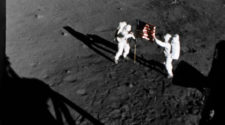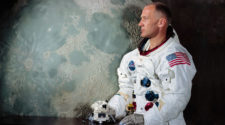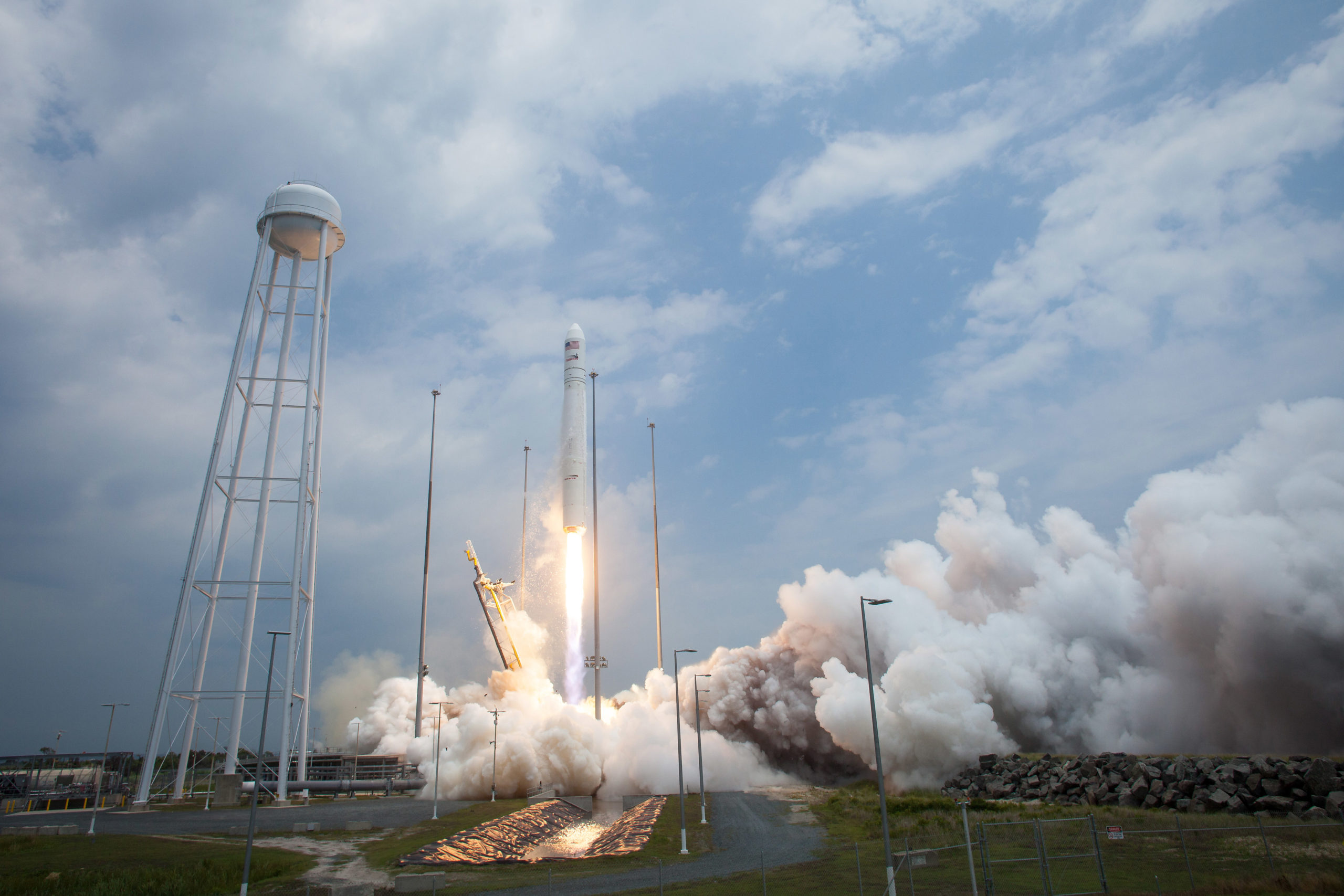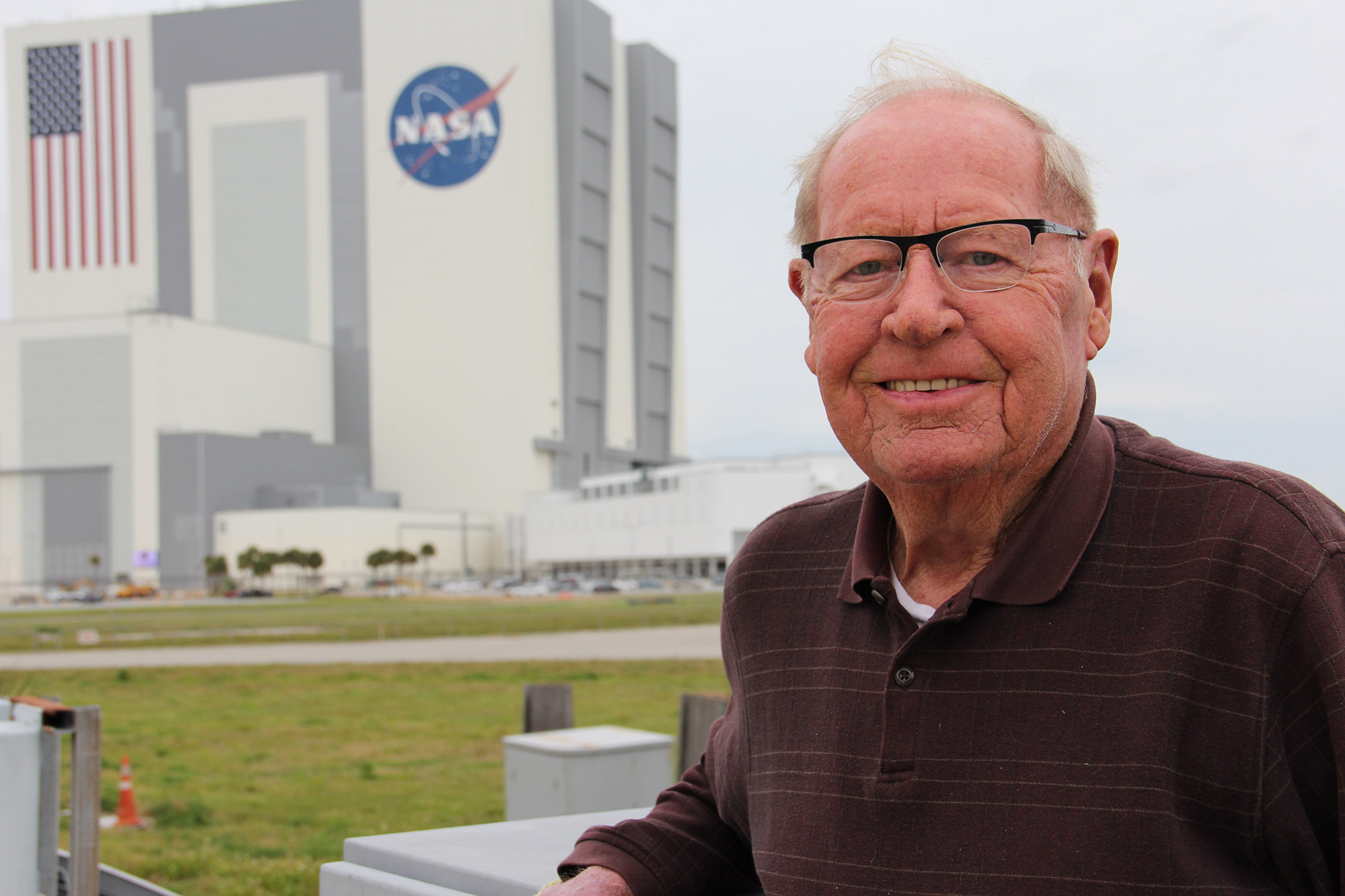
Most people have crushes on astronauts, but I’m smitten by a voice. Jack King has never been to the Moon. He has never had a ticker tape parade. You wouldn’t recognize him if you passed him on the street. But the moment he begins speaking, chances are you’d want a front row seat, because Jack King has seen it all.
King is best known for his work as the NASA Chief of Public Information during the Mercury, Gemini and Apollo missions. It was his voice that was heard as Apollo 11 lifted off for the Moon, earning him the nickname, “The Voice of Apollo.” A 15-year NASA veteran, King is now retired, but still volunteers his time as a public affairs officer for the agency with which he is so associated.
I recently had the privilege of sitting down with King for a generous interview that spanned some of NASA’s greatest accomplishments and his most cherished memories.
3…2…1…LIFTOFF.
RocketSTEM: How did you make a name for yourself in the world of journalism?
Jack KING: “I was born and raised in Boston, Massachusetts. I lived there for 25 years. My dad was a sports writer for the Associated Press. I wanted to follow in my dad’s footsteps as a newsman. That’s how it all came about really. I worked as an office boy for the Associated Press every summer from high school all the way through college.
“I started off as the low man on the totem pole and worked my way up. I was a rookie newsman working with some great people, some really talented people and I was fortunate enough to take advantage of their guidance.
“One night I was all alone in the office and a ship had crashed, the SS Andrea Doria. It was in a collision with the Stockholm off the coast of Nantucket. I grabbed the almanac and looked up the passenger list. It was 5,632 or something like that. I saw and I jumped on the wire with a bulletin and was the first to report it. In the wire service the great competition was between Associated Press, United Press and International News Service. There was always the rush to be first and accurate with the news and that particular night I was first, which went down to my credit.”
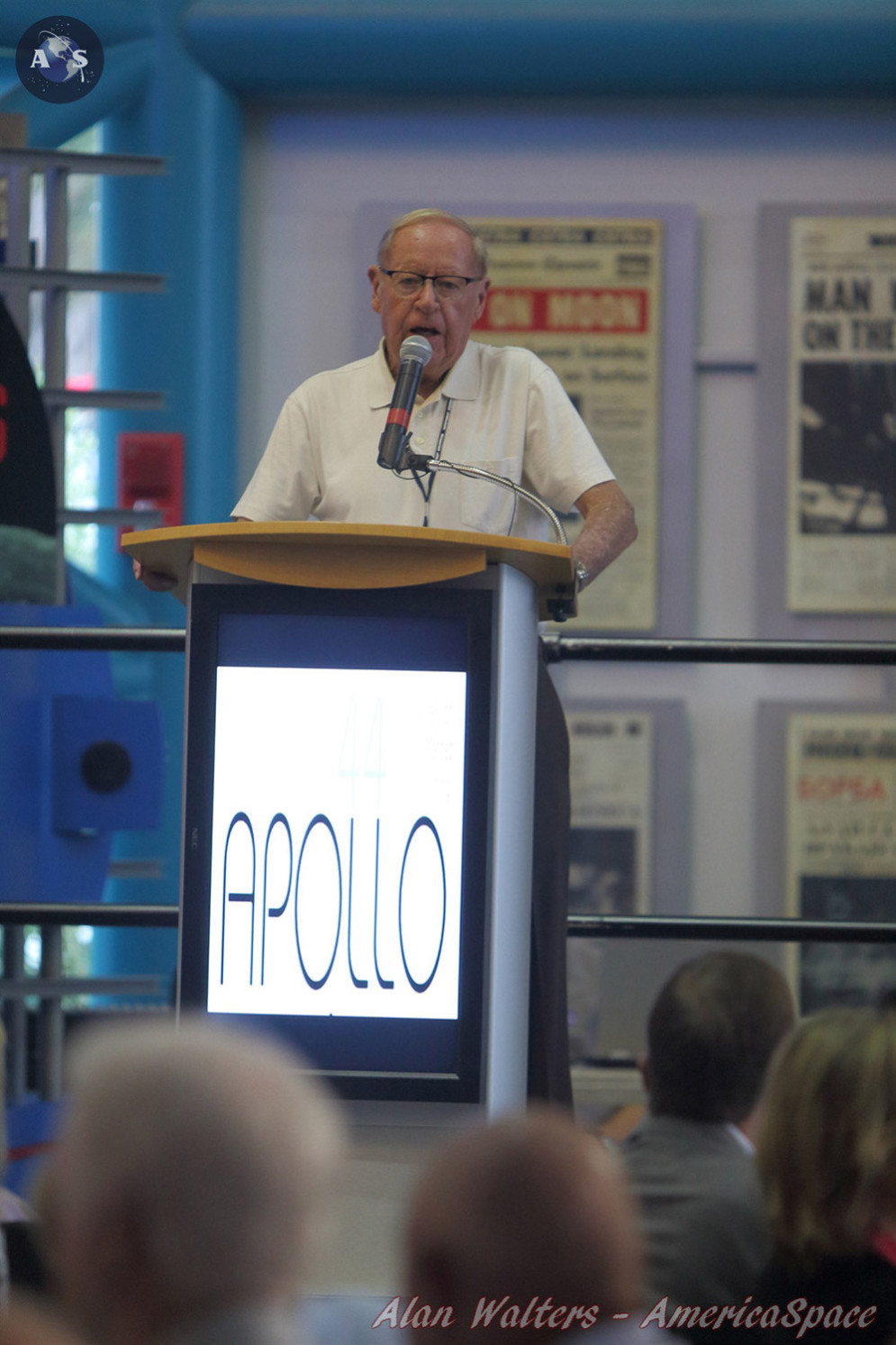
RS: When did you start covering launches?
KING: “The early era of space exploration was driven by a race between the Soviet Union and the United States. In 1957 I covered the launch of Sputnik, followed by the explosion of Vanguard and a month later Explorer 1.
“What happened was after Sputnick, Associated Press saw what was going on down in Florida. We were developing our own big rockets, at the time the Atlas and the Titan. They decided that they should have a full time news chief down at the Cape. So my bureau chief recommended me and the next thing I knew I was down there covering all the stories.
“I remember there were two major motels in Cocoa Beach at the time, one was the Vanguard and one was the Starlight. I had two floors in the Vanguard, the Associated Press did. It was a beautiful set up. I had a bedroom upstairs and a printer and a whole newsroom downstairs. I had a telescope looking out at the Cape. Whenever there was launch a big red ball would drop notifying the ships.”
RS: How did you become a permanent part of America’s beloved space agency?
KING: “NASA was established in 1958, the same year I came to the Cape. The agency didn’t have anything set up at that time. They had just been established and named the Mercury 7 astronauts who were stationed up at Langley. NASA had its first actual presence in 1960 when the Wernher von Braun team came over to NASA. At that time I was offered the job to be director of public information.”
RS: Did you ever meet President Kennedy?
KING: “I’m from Boston and we grew up with the Kennedys. I had great respect for President Kennedy. I don’t think he was particularly a tremendous champion of the space program but he was in is a position where he had to use it and that is what lead him to give us a mandate to land a man on the Moon before the end of the decade.
“In those days everything we were doing was for the first time which was quite a challenge in itself. As a result of Kennedy we had the nation behind us.
“NASA started out with the Mercury program and that was to show that man could work in space. The first mission was with Alan Shephard and anybody who was there never forgets. I must admit it was the only launch I got misty eyed on, the first American to go into space.
“We were just a small group at that time we hadn’t become the Kennedy Space Center or anything else. There were a handful of us working down there and we were still doing basic things with small rockets, and here was Kennedy coming out and saying land astronauts on the Moon. We were just dazzled.”
RS: When did you start during launch commentary?
KING: “I had done about 25 unmanned launches before I started doing the countdowns for Apollo. Those were the weather satellites, communications satellites, lunar and planetary probes. Those were all in the early days. I had been during launch countdowns for years and just fell into the Apollo launches.”
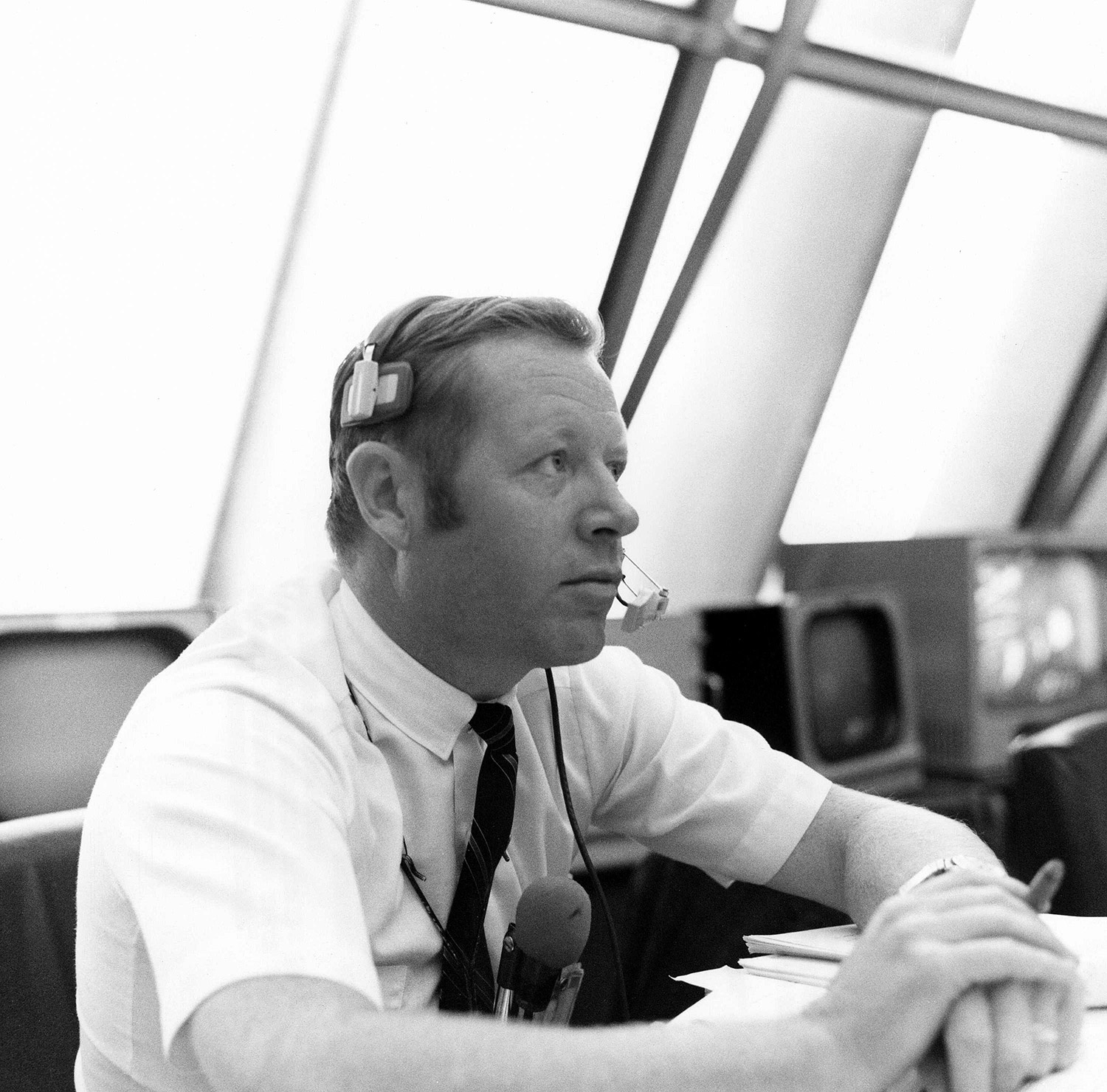
RS: How did you get the nickname the Voice of the Apollo?
KING: “I don’t know how I got that nickname. I did the commentary on all the Apollo launches so I guess if came from that. I also did the countdowns for Gemini 4 through Gemini 12. It’s very humbling to be told that your voice has been heard by more than a billion people.”
RS: Where were you during the Apollo 1 fire?
KING: “I was in a block house when the fire happened. I used to sit in for all the prelaunch tests to get the experience and that was something I will never forget.
“There was a 155 pound escape rocket sitting on top of the spacecraft and when it burst into flames and the call came in fire in the spacecraft… fire in the spacecraft, we were all stunned. It was a spark that was created under Gus Grissom’s boot. The fire occurred at 6:31 p.m. and I didn’t get out of the block house at about 3 o’clock in the morning. That actually put the spacecraft down. We went from January 1967 until November of 1967 without another launch.”
RS: What do you remember about the launch of Apollo 4?
KING: “The sound! The sound hit on launch, and the windows were starting to rattle and the ceiling was coming down, and I thought the whole building was going to come down. It knocked Walter Cronkite right out of his seat. Saturn V was amazing to me. We launched it 13 times and it worked everytime. Twelve times with Apollo and once with Skylab.”
RS: How intense was the press back in the early days?
KING: “The biggest group we ever had was more than 3,000 reporters for Apollo 11 and that included media from all over the world. The dedication of the general public just amazed me. Back then people would come out and watch the launch from any place they could. They were excited and focused and paying attention to the launch. Nobody had cell phones so people weren’t looking down and trying to post online or do social media stuff like they do today. All eyes were on the launch. It was a different time.”
RS: How did the media get launch information?
KING: “Back in the beginning we were operating on a military facility and information was very limited. Nobody would tell you anything. When the Vanguard blew up the press wasn’t allowed to go out there at all. So what I did was make sure I was available to the press with as much information as possible.
“One thing NASA did at the start was hiring four really good newsmen. I came from the Associated Press and obviously I had to be a pretty good writer. Paul Haney and Al Alabrando came from the Washington Star. These were good solid news guys who could really write. A guy named Julian Spears came from a newspaper in North Carolina and he got things very organized.
“Jim Webb was the NASA administrator at the time and he did a fantastic job. He would pound his feet on Capitol Hill and really got the NASA public affairs program going.
“We were the only ones screaming you’ve got to have a camera in the Apollo spacecraft. The astronauts didn’t want a camera. They were worried about the weight. Every ounce of payload weight was looked at very closely. But in the end we won that battle and when people saw that footage they were blown away. All those guys are gone now. God bless them. I’m kind of the end of an era here I think. There aren’t many of us around.”
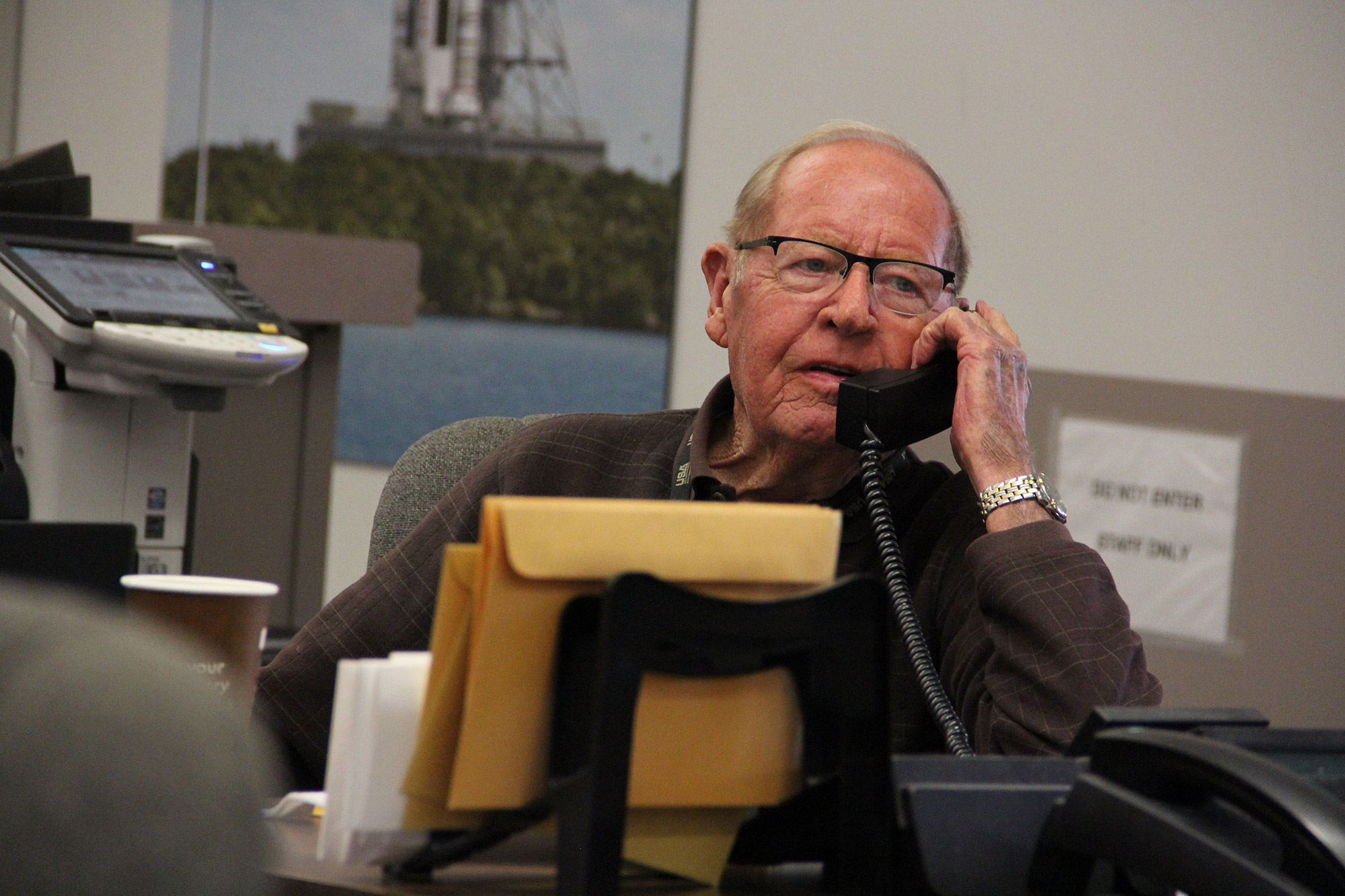
RS: How has NASA changed over the years?
KING: “When you consider the Apollo era and all these things that took place the 1960s it was one of the most dramatic decades of the 20th century without any question. We had three major assassinations. We had the cold war with the Russians and the hot war with Vietnam. We had the protests about the war. You had racial unrest all across the country. You had the rise of the hippie and drug movement. All of these things were taking place while we were trying to develop our capabilities to go to the Moon, which we did.
“There were a lot of negative things in that decade and what NASA was able to accomplish was just incredible.
“Back then we had a tremendous management team. You had General Sam Phillips, who was the program manager for Apollo. In Houston, Bob Gilruth and Chris Kraft were great leaders. You had Kurt Devise here at the Cape and a marvelous guy named Rocco Petrone who was the launch director. You had of course von Braun in Huntsville, and you had some top people in Washington. The management team to me was the key to our success. The last 25 years have been very different.”
RS: Back then five cents from every dollar went to NASA, and now in 2014 a half of penny goes to the agency. How are we suppose to get to Mars with that kind of money?
KING: “One of the few space movies that is truly outstanding is Apollo 13. There is one scene where Marilyn Lovell is taking her kids into Mission Control and the Apollo 13 crew before the incident occurred were showing weightlessness and stuff, and the news wasn’t airing it. That was the first sign that the public interest was starting to lag. It took 22 billion dollars to get those guys to the Moon. Who knows how much money it will take to get to Mars!”
RS: Do you think the International Space Station slowed us down?
KING: “We could have spent the last 30 years building hydrogen rockets. Shuttle slowed us down. I wanted to be on Mars 20 years ago. Shuttle did a good job, but it cost a lot of money and a lot of time.”
RS: How would you like people to remember you?
KING: “As a good father, a family man, as somebody who enjoyed the heck out of his job, all the way through. As somebody who loved what he did and enjoyed everyday going to work, all the way to the end.”
Editor’s Note: Jack King died on June 11, 2015 at the age of 84. This interview, conducted the previous year, was published in the July 2014 issue of RocketSTEM. It was one of the last interviews conducted with him.

